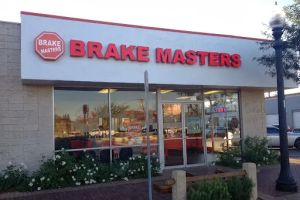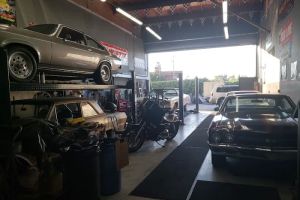How to Troubleshoot a Malfunctioning Brake Booster: A Comprehensive Guide
- 1. Understanding the Brake Booster
- 2. Symptoms of a Malfunctioning Brake Booster
- 3. How to Troubleshoot a Malfunctioning Brake Booster
- 4. Common Causes of Brake Booster Failure
- 5. Real-Life Case Study: A Brake Booster Problem and Quick Fix
- 6. When to Call a Professional for Brake Booster Repair
- 7. Why Choose Rescue & Towing for Your Car Repair Needs
1. Understanding the Brake Booster
The brake booster is a vital component of your vehicle’s braking system, responsible for providing extra force to help reduce the amount of effort needed to apply the brakes. It is typically powered by vacuum pressure from the engine, or in some cases, by electric power. The brake booster makes stopping your vehicle easier by amplifying the force you apply to the brake pedal, ensuring your safety, especially in emergency situations.
Understanding how the brake booster functions can help you identify when it may be malfunctioning and allow you to take proper action. It's crucial for safe vehicle operation, and any malfunction could make braking more difficult, potentially putting you at risk on the road.
2. Symptoms of a Malfunctioning Brake Booster
If your brake booster is malfunctioning, there are several signs that you may notice. Understanding these symptoms can help you troubleshoot the issue and take appropriate steps. Common symptoms of a malfunctioning brake booster include:

Brake Masters
24411 Main St, Santa Clarita, CA 91321, USA
2.1 Harder Brake Pedal
One of the most noticeable symptoms of a malfunctioning brake booster is a significantly harder brake pedal. If you find that it takes more effort than usual to press the brake pedal down, this is often a sign that the booster isn’t functioning properly, and it may need attention.

Little D's Muffler & Brakes
2970 S Winchester Blvd, Campbell, CA 95008, USA
2.2 Increased Stopping Distance
If your car’s braking performance feels sluggish or you need to push the brake pedal farther than usual to stop the vehicle, this could indicate a problem with the brake booster. The booster is responsible for amplifying your braking force, so if it isn’t working, it could affect how quickly and effectively you stop.
2.3 Unusual Noises from the Brake Pedal
Another symptom of a malfunctioning brake booster is unusual sounds, such as a hissing or vacuum leak noise coming from around the brake pedal. This can indicate an air leak in the booster or the vacuum system, which could prevent the booster from functioning properly.
3. How to Troubleshoot a Malfunctioning Brake Booster
When troubleshooting a malfunctioning brake booster, there are a few steps you can take to identify the problem. Let’s break down the process:
3.1 Check for Vacuum Leaks
One of the first steps in troubleshooting a brake booster is to check for vacuum leaks. A vacuum leak can prevent the booster from working correctly. Inspect the vacuum hose connected to the booster for any cracks or signs of wear. If you suspect a vacuum leak, you can use a vacuum gauge to test for proper pressure.
3.2 Inspect the Brake Booster Check Valve
The check valve is an important component that prevents air from flowing backward into the brake booster. If the valve is faulty, the brake booster may lose its vacuum pressure, leading to braking issues. Check the valve by disconnecting it and inspecting it for blockages or damage.
3.3 Test the Brake Booster Function
To test the brake booster’s functionality, start your car and let it idle. Press the brake pedal a few times while the engine is off, and then hold the brake pedal down while the engine is running. If the brake pedal sinks slightly, the booster is likely working. If there is no change, it could indicate a problem with the booster itself.
4. Common Causes of Brake Booster Failure
Several factors can lead to brake booster failure. Some of the most common causes include:
4.1 Vacuum Leaks
As mentioned earlier, vacuum leaks are a common cause of brake booster malfunction. These can occur due to worn-out vacuum hoses or a damaged check valve, leading to a lack of vacuum pressure needed for the booster to function properly.
4.2 Contaminated Brake Fluid
Contaminants in the brake fluid, such as dirt or moisture, can affect the brake booster’s operation. Regularly flushing the brake fluid can help maintain the booster’s functionality and prevent damage from contaminants.
4.3 Faulty Brake Booster Diaphragm
The diaphragm inside the brake booster can wear out over time, reducing its ability to amplify the braking force. If this occurs, the entire brake booster may need to be replaced to restore proper braking performance.
5. Real-Life Case Study: A Brake Booster Problem and Quick Fix
Recently, I experienced a brake booster failure in my car. I noticed that the brake pedal was becoming significantly harder to press, and the vehicle was taking longer to stop. After inspecting the brake system, I realized there was a vacuum leak in the booster’s hose. I was able to fix the issue by replacing the damaged hose and cleaning the check valve, which immediately restored normal braking performance.
This experience made me realize how crucial it is to regularly check and maintain the brake booster, especially if you start noticing any unusual symptoms. It’s always better to address small issues before they lead to bigger problems.
6. When to Call a Professional for Brake Booster Repair
If you’re unable to troubleshoot or repair your brake booster on your own, or if you’re unsure of the issue, it’s always best to call a professional mechanic. Brake boosters are a critical safety component, and a malfunctioning booster can make it difficult to stop your vehicle, leading to potential accidents.
A qualified mechanic can diagnose the issue, repair or replace faulty components, and ensure that your braking system is functioning properly, keeping you safe on the road.
7. Why Choose Rescue & Towing for Your Car Repair Needs
If you’re dealing with a malfunctioning brake booster and need roadside assistance or towing services, Rescue & Towing is here to help. Whether you need a tow to the nearest repair shop or expert assistance with brake system repairs, their team is equipped to handle your car's issues swiftly and professionally.
Click here to learn more about Rescue & Towing’s services and how they can help you get back on the road safely.

























